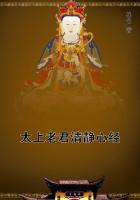It is easy to criticize Jefferson and to pick flaws in the things that he said as well as in the things that he did, but practically every one admits that he was closely in touch with the course of events and understood the temper of his contemporaries. In this period of transition from the old order to the new, he seems to have expressed the genius of American institutions better than almost any other man of his generation.
He possessed a quality that enabled him, in the Declaration of Independence, to give voice to the hopes and aspirations of a rising nationality and that enabled him in his own State to bring about so many reforms.
Just how much actual influence Thomas Jefferson had in the framing of the American land policy is not clear. Although the draft of the committee report in 1784 is in Jefferson's handwriting, it is altogether probable that more credit is to be given to Thomas Hutchins, the Geographer of the United States, and to William Grayson of Virginia, especially for the final form which the measure took; for Jefferson retired from the chairmanship and had already gone to Europe when the Land Ordinance was adopted by Congress in 1785. This ordinance has been superseded by later enactments, to which references are usually made; but the original ordinance is one of the great pieces of American legislation, for it contained the fundamentals of the American land system which, with the modifications experience has introduced, has proved to be permanently workable and which has been envied and in several instances copied by other countries. Like almost all successful institutions of that sort, the Land Ordinance of 1785 was not an immediate creation but was a development out of former practices and customs and was in the nature of a compromise. Its essential features were the method of survey and the process for the sale of land. New England, with its town system, had in the course of its expansion been accustomed to proceed in an orderly method but on a relatively small scale. The South, on the other hand, had granted lands on a larger scale and had permitted individual selection in a haphazard manner. The plan which Congress adopted was that of the New England survey with the Southern method of extensive holdings. The system is repellent in its rectangular orderliness, but it made the process of recording titles easy and complete, and it was capable of indefinite expansion. These were matters of cardinal importance, for in the course of one hundred and forty years the United States was to have under its control nearly two thousand million acres of land.
The primary feature of the land policy was the orderly survey in advance of sale. In the next place the township was taken as the unit, and its size was fixed at six miles square. Provision was then made for the sale of townships alternately entire and by sections of one mile square, or 640 acres each. In every township a section was reserved for educational purposes; that is, the land was to be disposed of and the proceeds used for the development of public schools in that region. And, finally, the United States reserved four sections in the center of each township to be disposed of at a later time. It was expected that a great increase in the value of the land would result, and it was proposed that the Government should reap a part of the profits.
It is evident that the primary purpose of the public land policy as first developed was to acquire revenue for the Government; but it was also evident that there was a distinct purpose of encouraging settlement. The two were not incompatible, but the greater interest of the Government was in obtaining a return for the property.
The other committee of which Jefferson was chairman made its report of a plan for the government of the western territory upon the very day that the Virginia cession was finally accepted, March 1, 1784; and with some important modifications Jefferson's ordinance, or the Ordinance of 1784 as it was commonly called, was ultimately adopted. In this case Jefferson rendered a service similar to that of framing the Declaration of Independence. His plan was somewhat theoretical and visionary, but largely practical, and it was constructive work of a high order, displaying not so much originality as sympathetic appreciation of what had already been done and an instinctive forecast of future development. Jefferson seemed to be able to gather up ideas, some conscious and some latent in men's minds, and to express them in a form that was generally acceptable.
It is interesting to find in the Articles of Confederation (Article XI) that, "Canada acceding to this confederation, and joining in the measures of the United States, shall be admitted into, and entitled to all the advantages of this Union: but no other colony shall be admitted into the same unless such admission be agreed to by nine States." The real importance of this article lay in the suggestion of an enlargement of the Confederation. The Confederation was never intended to be a union of only thirteen States. Before the cession of their western claims it seemed to be inevitable that some of the States should be broken up into several units. At the very time that the formation of the Confederation was under discussion Vermont issued a declaration of independence from New York and New Hampshire, with the expectation of being admitted into the Union. It was impolitic to recognize the appeal at that time, but it seems to have been generally understood that sooner or later Vermont would come in as a full-fledged State.
It might have been a revolutionary suggestion by Maryland, when the cession of western lands was under discussion, that Congress should have sole power to fix the western boundaries of the States, but her further proposal was not even regarded as radical, that Congress should "lay out the land beyond the boundaries so ascertained into separate and independent states."















